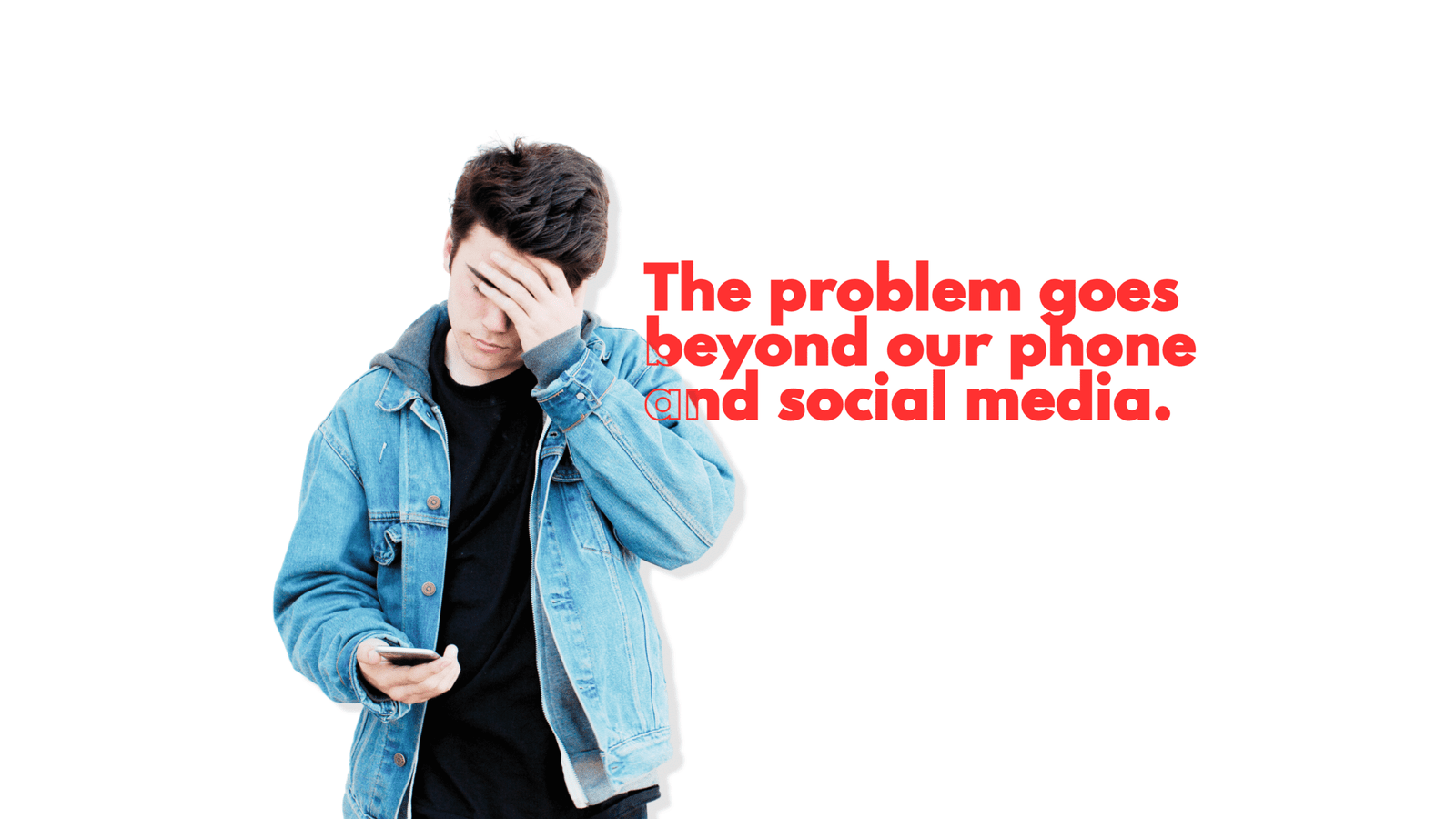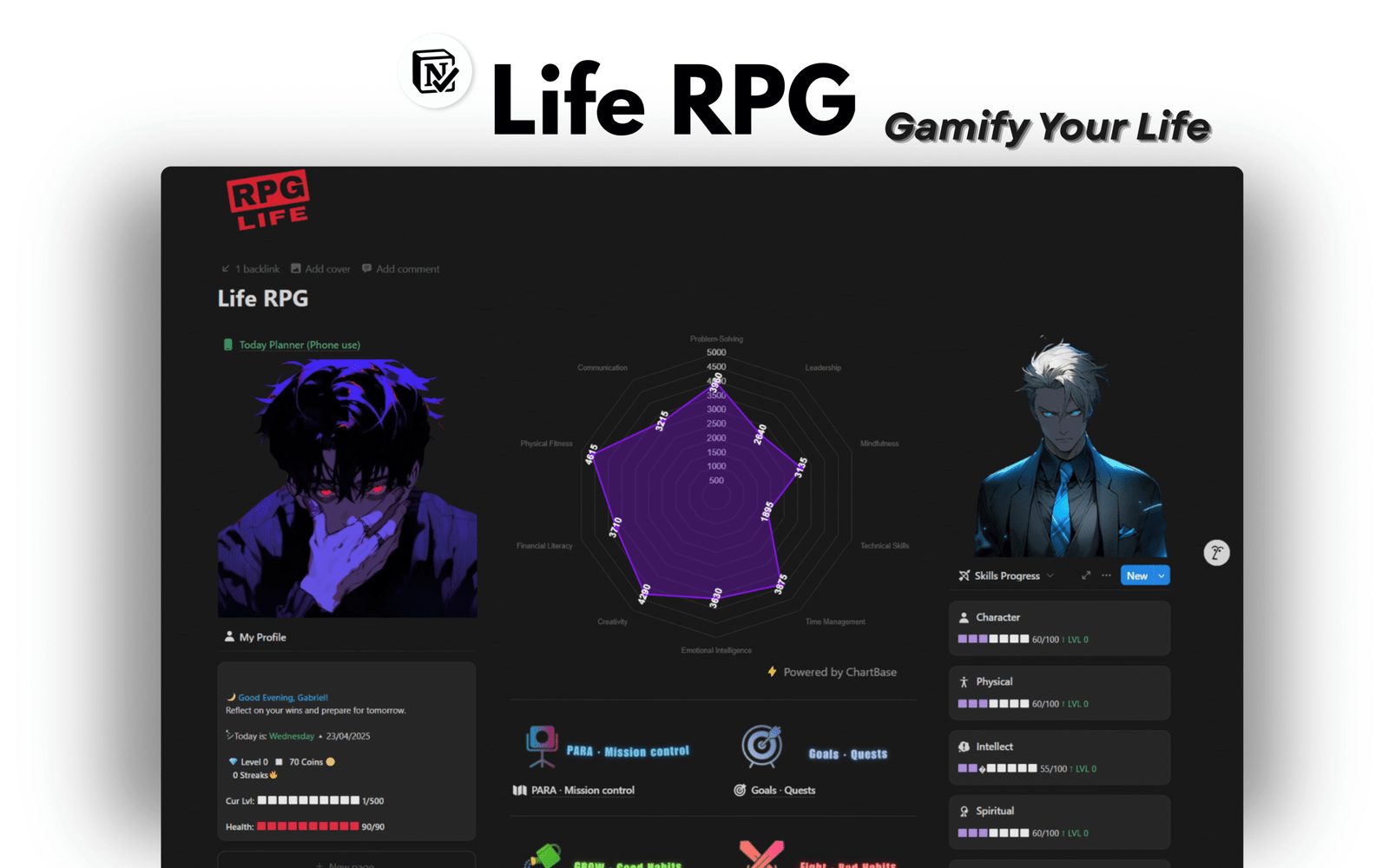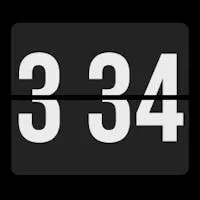Why The Best Productivity Hacks Won’t Save You from Distraction
- RAED
- 5 min read

Jump to section
Every time I sit down to focus, my brain decides that re-organizing my bookshelf or watching ‘just one’ YouTube video is more important. (Which obviously turns out to be a marathon of binge-watching)
A few days ago, as I was drowning in a pile of unfinished tasks that should have been completed months ago, I decided to take control of my life and sought advice from productivity gurus.
These people have some special powers that can even make your sleep and shower productive. So, I tried my hands on all possible techniques, from blocking my calendars to Pomodoro to the fancy DND mode on my phone, to save myself from the avalanche of procrastination.
But, nothing worked for me.
However, I stumbled upon a book later, that had answers to my problems.
Shifting the Blame
We have been trained to believe that those pings, pop-ups, and endless scrolls are our enemy. After all, wouldn’t we be the most productive versions of ourselves if only we could travel back to a time before technology ruled our lives?
But here’s the uncomfortable truth: the problem goes deeper than our devices. Technology isn’t the root cause of our distraction-it’s merely the most convenient scapegoat. As revealed in “Indistractable,” a book that explores the psychology of distraction, our devices are just the proximate cause, not the root cause of our wandering attention.
The real culprit? Our internal discomfort and the desire to escape it. That urge to check social media or reorganize your bookshelf isn’t random-it’s your brain’s sophisticated strategy to avoid psychological discomfort. When we feel bored, anxious, or overwhelmed by a challenging task, we instinctively seek relief through distraction.
The Productivity Hack Myth
The hard truth is that most productivity hacks are built on a flawed premise-that there’s a quick fix for our complex relationship with focus and attention. But as Lisa from the Positively Living Podcast points out, “Tips that are shared as ‘hacks’ are often based on the idea that there’s a quick fix for our productivity problems. But the truth is, there is no quick fix.”
This explains why that trendy time-blocking technique or the latest focus app might work for a few days before you slide back into old patterns. These approaches treat the symptoms without addressing the underlying cause.
Moreover, productivity advice often fails because it takes a one-size-fits-all approach. What works for a morning person won’t necessarily work for a night owl. What helps an executive manage meetings won’t help a creative professional nurture inspiration. As research shows, more than 60% of people want to be more productive, but finding advice isn’t the problem-applying it effectively to your unique situation is where most people struggle.
The Real Roots of Distraction
To overcome distraction, we need to understand what’s really happening in our brains. According to neuroscience research, every time we receive a notification or check social media, our brains get a dopamine hit-the neurotransmitter responsible for feelings of reward and pleasure. This creates a cycle that’s genuinely addictive, making it exceptionally difficult to break free through willpower alone.
Moreover, distraction isn’t just about weak willpower. As the “Indistractable” book explains, all behaviors are either pulling us toward what we want (traction) or away from it (distraction). Both are prompted by triggers, which can be either internal (feelings, thoughts) or external (notifications, people interrupting).
The key insight here is that our battle against distraction isn’t really about technology-it’s about managing these internal triggers. When we feel stressed, bored, or overwhelmed, we seek escape, and our phones are simply the most accessible escape route.
Why Traditional Productivity Systems Fall Short
Traditional productivity advice tends to focus heavily on external triggers-recommending app blockers, time management techniques, and digital detoxes. While these can be helpful tools, they don’t address the fundamental issue. As Ellyn, a coach for high achievers, points out: “High achievers don’t have a discipline problem-they have a systems problem.”
The issue isn’t that you need more discipline or willpower. The real problem might be that:
- Your systems make execution harder, not easier
- Your workflows don’t match your natural energy cycles
- Your tools don’t effectively support the way you work
Even the most disciplined person will eventually struggle if their productivity system fights against their natural working style rather than enhancing it.
Finding What Actually Works
So what does work? The research suggests several key principles:
1. Address the root causes, not just symptoms
Instead of just blocking distracting websites, understand what drives you to those distractions in the first place. Are you trying to avoid a difficult task? Are you bored? Overwhelmed? By identifying these internal triggers, you can develop healthier responses.
2. Create systems that match your unique needs
The most effective productivity approaches are personalized. Rather than following generic advice, develop systems that align with your energy patterns, working style, and specific challenges. As one Forbes article notes, “There is no one-size-fits-all solution to productivity” and what works in one situation might not work in another.
3. Focus on capacity, not just time management
High performers recognize that the issue isn’t simply managing time better-it’s creating enough mental bandwidth and capacity for focused execution. This means building adequate white space into your schedule to allow for deep work and recovery.
4. Make execution frictionless
Instead of fighting against your natural tendencies, design workflows that make it easier to do the right thing. This might include creating templates, automations, and simplified processes that reduce the barriers to getting started.
Gamifying Your Way to Focus: The Life RPG Solution
LIFE RPGOne particularly promising approach that addresses many of these principles is gamification-specifically, apps like Life RPG that transform real-life productivity into a game-like experience.
Life RPG turns your everyday tasks into quests, allowing you to earn experience points, level up, and develop skills just like in a role-playing game. This approach works because it:
- Provides immediate rewards for progress: Instead of waiting for the distant satisfaction of completing a project, you get immediate dopamine hits from earning points and leveling up.
- Creates a visual representation of progress: The app shows your improvement over time, making your efforts tangible and visible.
- Builds intrinsic motivation: By focusing on character development and skill building, it taps into deeper motivational drivers than simple to-do lists.
- Offers structured systems: It provides the kind of clear systems and structure that many high achievers need but struggle to create for themselves.
With Life RPG, you can break bad habits, plan quests or missions, and see your progress through behavior charts, skill charts, and level progression bars. The app even lets you compete with friends by implementing plans and sending tasks to each other with rewards.
Moving Beyond Productivity Hacks
The journey toward meaningful productivity isn’t about finding the perfect hack-it’s about understanding yourself and creating systems that work with your psychology, not against it.
Instead of endlessly seeking new productivity techniques, focus on:
- Understanding your internal triggers and developing healthier responses
- Building systems that match your unique working style
- Creating frictionless workflows that make execution easier
- Using tools like Life RPG that provide structure, motivation, and immediate rewards
By transforming productivity from a struggle into a game, solutions like Life RPG offer a promising alternative to traditional approaches that too often feel like punishment rather than empowerment. The gamification approach doesn’t just make productivity more enjoyable-it makes it more sustainable by working with your brain’s reward systems rather than fighting against them.
So if you’re tired of productivity hacks that don’t stick, perhaps it’s time to level up your approach. Give Life RPG a try and turn your real-life challenges into quests worth conquering. After all, if you’re going to tackle your to-do list, you might as well earn some experience points along the way.
Related Posts

Gamifying Personal Development Through Custom Life RPG Notion Systems
The integration of role-playing game mechanics into personal productivity systems represents a
